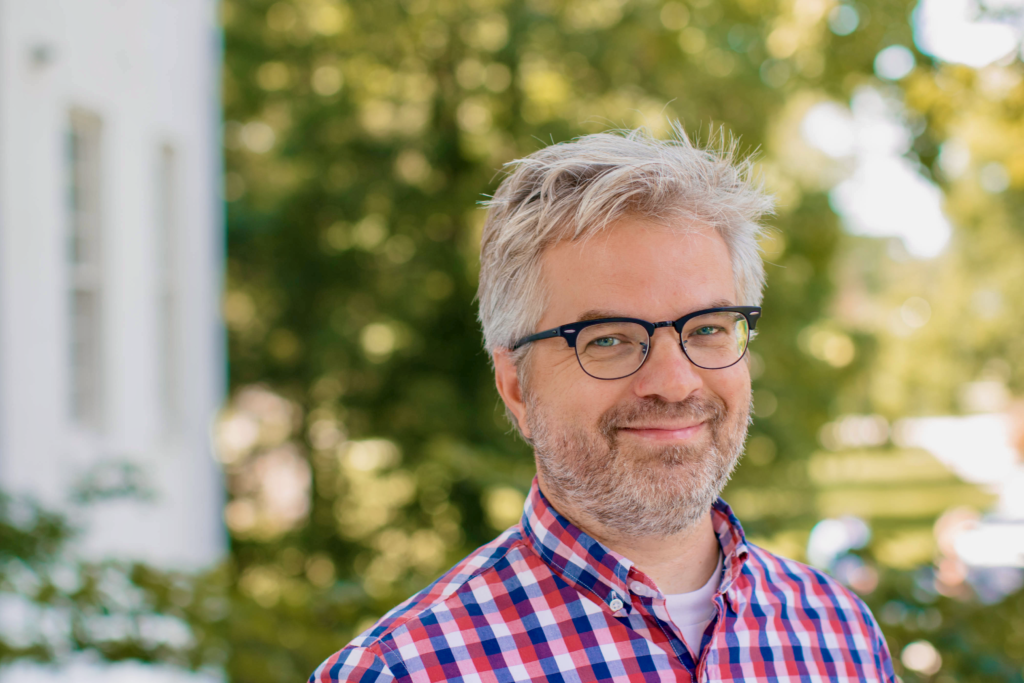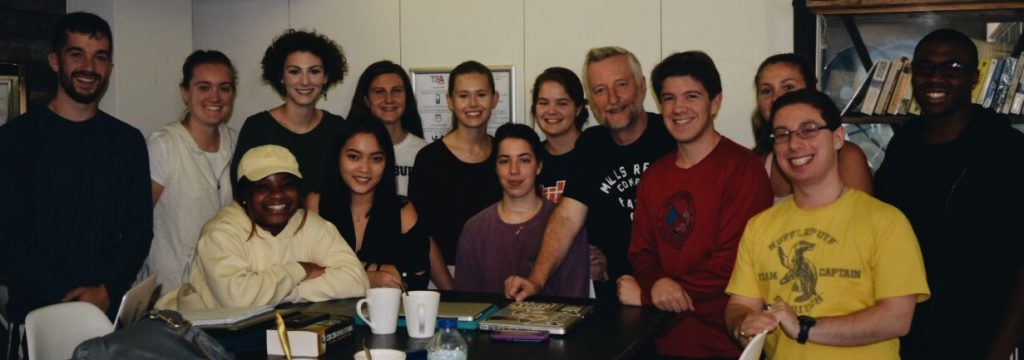About

I started my career as a high school social studies teacher in Gwinnett County, Georgia, and spent almost seven years in the classroom before completing my doctoral work in teacher education at the University of Georgia and joining the faculty at Gettysburg College in 2008. In the past, my work at Gettysburg was focused on helping students understand the complexities of teaching and education policy and helping them shape their own educational philosophies; these days my focus has shifted to teaching political philosophy and situating education reform in broader political and historical contexts. For over a decade now I have been teaching a seminar for first-year students that exposes them to the American blues and folk music tradition and helps them explore the various ways people have used music to express themselves politically and agitate for social change. I have also taught courses in the foundations of education, educational psychology, social studies methods, the politics of higher education, and on the politics of teaching history in troubled (and troubling) times.
After earning tenure in 2014 I served as chair of the Education Department for three years, where I helped rebuild our curriculum, guided the department through a successful self-study and external review, and coordinated the establishment of a new minor in Educational Studies. I later served as chair of Interdisciplinary Studies before beginning a second tour as chair of Education in 2019. Now I’m a member of the Department of Public Policy. From 2014-17 I wrote a regular column for Education Week as the “K-12 Contrarian.”
Straight From the Fridge
I was educated at the nation’s alma mater, where I studied literature and history and learned how to write like somebody who knows what the hell he’s talking about. Tribe Pride.
I’m an (occasionally) obnoxious Georgia fan. Ain’t nothing finer in the land. I’m an even more obnoxious fan of the Atlañta Braves, the best team in baseball—playoff rules be damned.
I only believe in fake punts when they’re there. If they aren’t there, that’s what timeouts are for. I don’t like umpires or referees who take the job too seriously. Just call ’em like you see ’em and let’s get on with it.
I only listen to good music (who doesn’t?), and my taste tends toward folk, blues, Americana, honky tonk, alt-country, and, of course, all kinds of stuff classified as “rock” from almost every era.
I also like John Francis, Erin McKeown (two-time inductee into the FYS 143-2 Hall of Fame), Sarah Lee Guthrie, Rob Tepper, Dom Flemons, Rhiannon Giddens, Leyla McCalla, Bhi Bhiman, Alynda Segarra, Will Johnson (purveyor of fine music and art), and Raye Zaragoza and think they kick ass for taking the time to come to Gettysburg and perform for our students and even meet with them to talk about protest music and social change. (Special shout out to Hilary Saunders, too, for coming to hang with us and talk about the experiences of women in the music industry and her work as an editor at No Depression.) I still wish Arlo had let us know that he was going to be hanging out at McClellan’s after his show. Next time, Arlo.
Also Billy Bragg. It doesn’t get much better than Billy Bragg.

By the Numbers
Four: I am married to a strong (and good-looking) woman, and together we have four above-average children. We even have the test scores to prove it.
Two: I have been project director of two NEH-sponsored workshops for teachers as part often Landmarks of American History & Culture program, and had a great time doing it. There are a lot of really good teachers out there. Smart ones, too.
One hundred and eleven: The number of posts I made to my “blog” at Education Week from 2014 until I retired it in 2017. Writing for page-clicks is harder than it looks, especially if you want to write stuff worth reading, but it was all worth it.
Five: I’ve lived in five states in my life: Indiana, South Carolina, Virginia, Georgia, and Pennsylvania. I have my favorites.
Thirteen: The number of students who accompanied me to London to participate in Gettysburg College’s London Seminar in the fall of 2017. The class they took, “London Calling: Punks Protest & Cultural Change in the UK,” focused on the emergence of popular protest music in the US and UK over the course of the 20th century, with special emphasis placed on the emerging youth counterculture of the 1960s, and featured almost-daily encounters with outstanding guides to the city of London and important sites around the city. We also had the chance to meet two of Britain’s great folk singers and political activists: Billy Bragg and the late, great Roy Bailey. Now we just have to figure out how to do it all again.
Nine, and counting: Number of times I’ve taught my first-year seminar, “This Machine Kills Fascists!: Protest Music & Social Change in the American Experience,” which has allowed me to finally fulfill my dream of getting paid to sit around and listen to music all day.